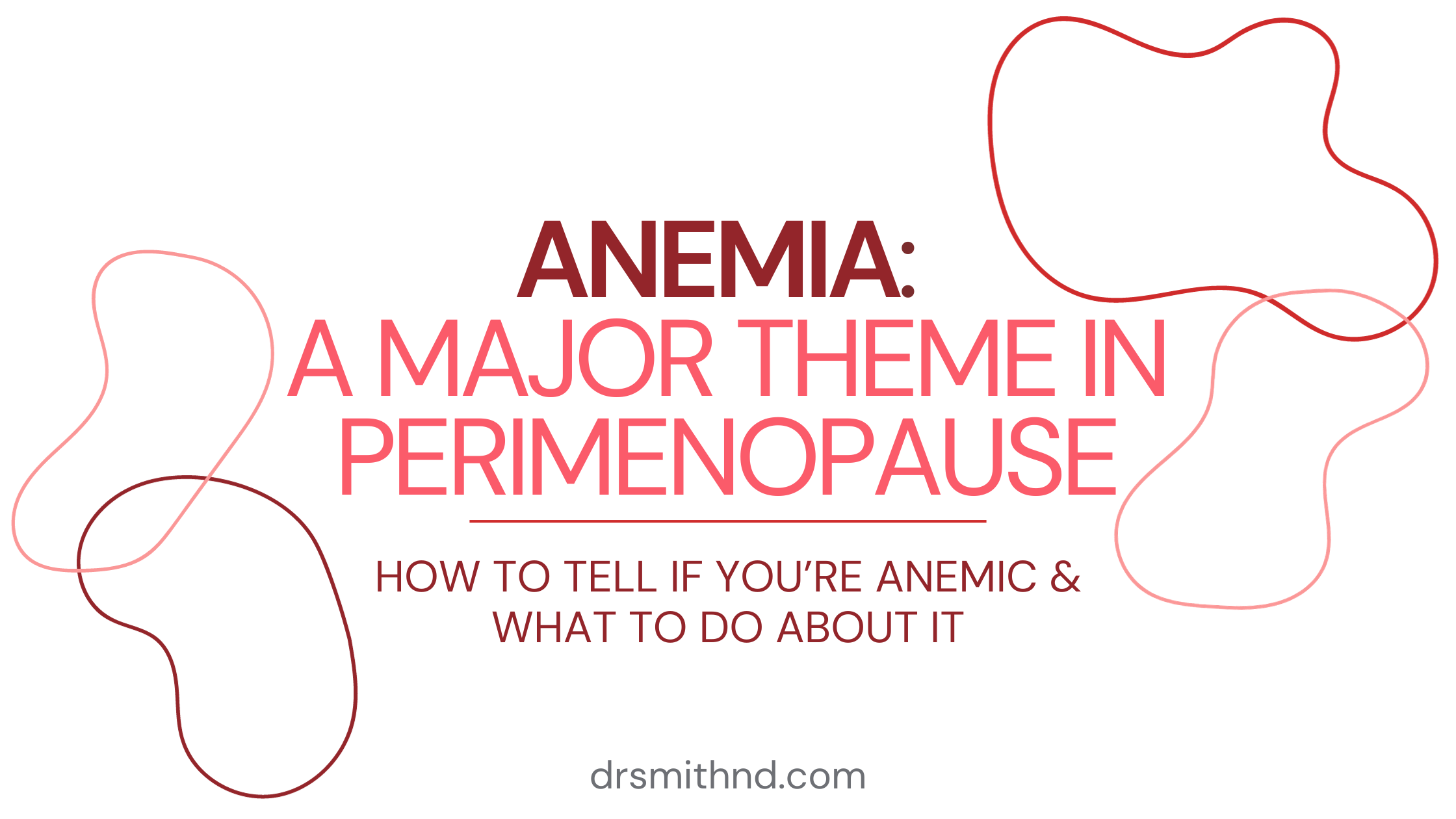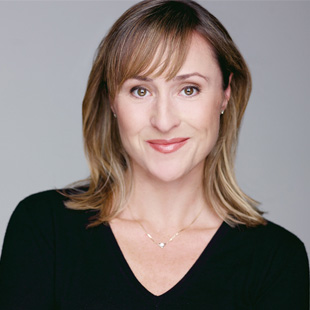During perimenopause (the 10 year span leading up to menopause), periods get heavier due to decreasing progesterone levels and subsequently many women end up anemic.
Are you in your late 30s, 40s or early 50s experiencing…
- General weakness and fatigue
- Depression
- Headaches
- Poor sleep quality
- Trouble concentrating
- Heart palpitations
- Hair loss
- Shortness of breath
- Exercise intolerance
- Irritability
- Loss of appetite
- Restless legs syndrome
Yes? Well, you may be suffering from iron deficiency anemia.
It’s common for women to find themselves with these symptoms and while they can be caused by various things, it is common that low iron is the culprit. A few themes that repeat themselves in clinical practice:
- Women don’t know they’re anemic
- Women know they are anemic but aren’t aware of what it can cause, how to manage it, or how important it is to correct it
- Women try to address it with their healthcare providers but iIt is entirely dismissed
This is a bit of a problem given that it is easy to treat and treating it greatly increases quality of life.
Lesser Known Facts About Low Iron/Anemia:
- It puts our thyroid health at risk as our thyroid needs iron along with a bunch of other minerals and vitamins to function properly
- It can cause heavier periods
- It can cause or worsen anxiety and depression because you need iron to make serotonin, dopamine, and noradrenaline
- Eating a lot of dairy (calcium) blocks iron absorption
- Drinking coffee & tea slows absorption (due to tannins)
What is Iron Deficiency Anemia?
A lack of healthy red blood cells due to insufficient iron levels. Without enough iron, your body can’t produce enough hemoglobin, a protein in red blood cells that enables them to do their very important job of transporting oxygen around to the body’s tissues.
Common Causes
- Certain medications
- Chronic diseases – ulcerative colitis, rheumatoid arthritis, kidney disease
- Other forms of anemia
- Pregnancy
- Underlying gastro-intestinal issues (such as celiac disease); malabsorption
- Bone marrow disease/leukemia, lymphoma, multiple myeloma, myelodysplasia, aplastic anemia
- Slow blood loss (ie. stomach ulcers or heavy menstrual periods)
- Sudden heavy blood loss which can include flooding periods (perimenopause), or post miscarriage, post labour
Testing for Low Iron
Laboratory blood work to consider: a CBC (complete blood count) & ferritin test. This list could expand depending on your individual case
If you have any questions about which lab tests are best for you, schedule an appointment with me.
Optimal vs “Normal” Iron Levels
Even if you are on the low end of the “normal” range, you can definitely still suffer from low iron symptoms. This is because the normal range is quite broad and as we know, “normal” is different for all of us. I frequently see women who are tired, have poor immune responses, have poor hair health, low mood, fatigue, heavy periods and they are in the “normal” range and get better when we raise their iron levels.
Treatments for Iron Deficiency Anemia
There are a couple ways to tackle iron deficiency. Diet can play a big role in regulating iron levels and balancing overall health and nutrient absorption. Supplements help as well.
Good food sources of iron include: red meat, poultry, eggs, fish, legumes, beets, whole grains, dark leafy greens, nuts and seeds
Tips for Boosting Absorption:
- Consume lots of vitamin C with your iron-rich foods, as vitamin C helps make plant-based iron more easily absorbable
- Don’t consume iron with calcium rich foods
- Cooking with cast-iron skillets
Supplementing with iron:
A recent study showed that absorption from iron supplements is optimized when supplements are taken every other day. My observation is that people tolerate chelated iron (such as iron glycinate) as it is gentler on digestion (https://www.ncbi.nlm.nih.gov/pmc/articles/PMC7193469/)
Have questions? Talk to me!
If you have any questions regarding your situation, low iron/anemia and you want someone who champions women’s health, I have got your back! You can book a consultation via my website.



